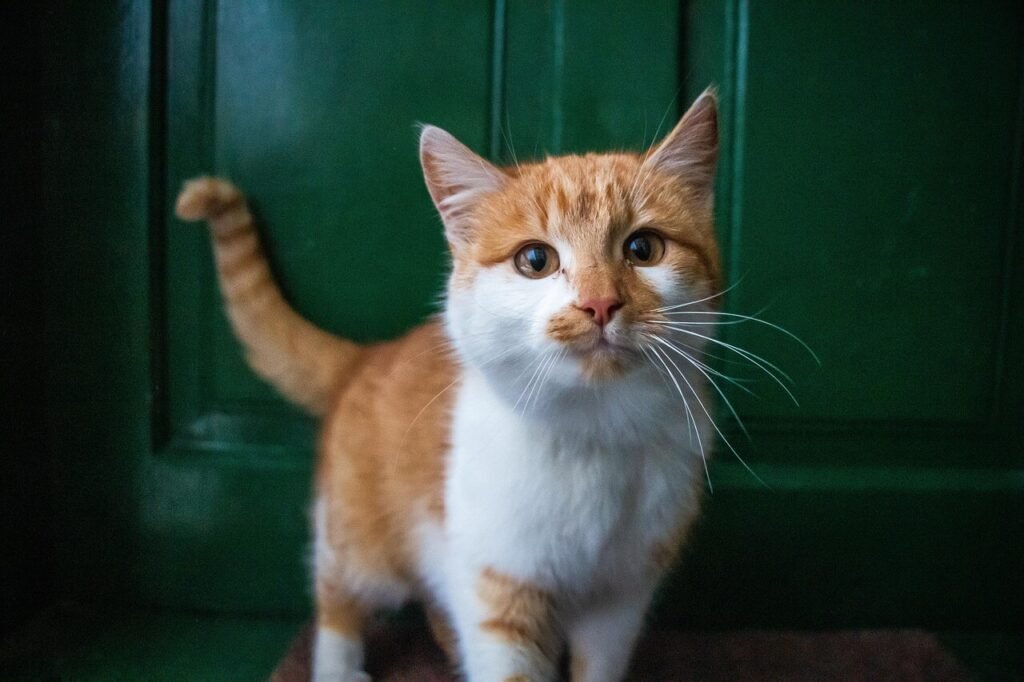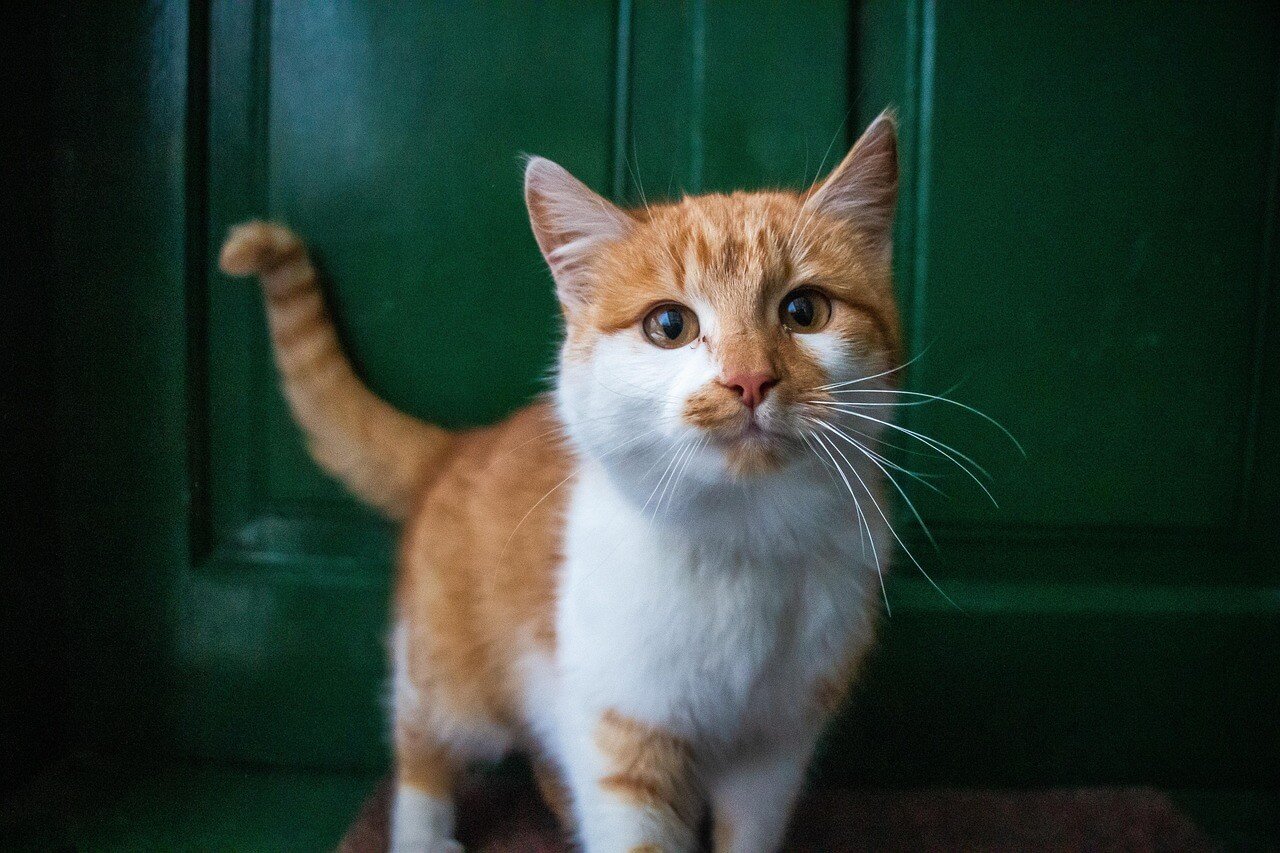Can Cats Have Autism? Exploring Feline Behavior and Neurodiversity
Autism spectrum disorder (ASD) is a well-documented condition in humans, characterized by differences in social interaction, communication, and behavior. But what about our feline companions? Can cats exhibit behaviors that resemble autism? While the term “autism” is specific to humans, many cat owners have noticed unique or unusual behaviors in their pets that spark curiosity. In this article, we’ll explore whether cats can display traits similar to autism, the science behind these behaviors, and how to support your cat if they seem different from others. By the end, you’ll have a clearer understanding of feline neurodiversity and how to nurture your pet’s individuality.
Unusual Behaviors in Cats: Are They Signs of Autism?
Cats are known for their quirky personalities, but some behaviors may stand out as particularly unusual. While cats cannot be diagnosed with autism, certain traits might resemble those seen in humans with ASD. These behaviors often stem from other factors, such as genetics, environment, or health conditions.
Repetitive Actions :
Some cats engage in repetitive behaviors like pacing, tail-chasing, or excessive grooming.Social Withdrawal :
A cat that avoids interaction or seems indifferent to human contact may raise questions.Sensitivity to Stimuli :
Certain cats are highly reactive to sounds, lights, or touch, showing signs of sensory overload.Difficulty with Change :
Cats thrive on routine, but some may struggle more than others with disruptions to their environment.Limited Vocalization :
Some cats are unusually quiet, rarely meowing or communicating in typical ways.
While these behaviors might remind us of autism-like traits, they are often linked to other causes. If your cat exhibits any of these signs, it’s essential to rule out underlying medical issues before jumping to conclusions.
How Does Feline Behavior Differ from Human Autism?
Though cats can display behaviors that seem similar to autism, there are significant differences between human neurodiversity and feline behavior patterns. Understanding these distinctions can help clarify why the term “autism” doesn’t apply to cats.
Genetic Differences :
Autism in humans involves complex genetic and neurological factors not observed in cats.Communication Styles :
Cats communicate differently than humans, relying on body language and subtle cues rather than verbal expression.Environmental Influence :
Cats’ behaviors are heavily shaped by their surroundings, whereas autism is an intrinsic condition in humans.Lack of Diagnostic Criteria :
There is no framework for diagnosing autism or similar conditions in animals.Focus on Survival Instincts :
Many unusual feline behaviors are rooted in survival instincts rather than neurodiversity.
While cats may exhibit behaviors resembling autism, these traits are better explained by their unique biology and experiences. It’s important to approach your cat’s quirks with curiosity rather than labels.
Check this guide 👉Understanding Swimmer Syndrome in Cats: Best 7 Tips!
Check this guide 👉Can Cats Have Down Syndrome? Best 7 Expert Tips!
Check this guide 👉Short Spine Syndrome in Cats: Best 7 Health Tips!

Possible Causes of Unusual Behavior | Ways to Support Your Cat |
|---|---|
Stress or anxiety | Provide a calm and predictable routine |
Sensory sensitivities | Reduce loud noises and bright lights |
Health issues | Schedule regular vet check-ups |
Lack of mental stimulation | Offer toys and interactive play sessions |
Past trauma or neglect | Shower them with patience and affection |
Tips for Nurturing a Cat with Unique Needs
If your cat displays behaviors that seem out of the ordinary, there are several ways to create a supportive environment tailored to their personality. Here are some expert tips to help your feline friend thrive.
Establish a Routine :
Cats find comfort in predictability, so maintain consistent feeding and playtimes.Create Safe Spaces :
Designate quiet areas where your cat can retreat when feeling overwhelmed.Limit Overstimulation :
Avoid exposing your cat to excessive noise or sudden changes in their environment.Provide Mental Enrichment :
Use puzzle feeders or interactive toys to keep their mind engaged.Be Patient and Observant :
Pay attention to your cat’s preferences and adjust your approach accordingly.
By adapting your home and habits to suit your cat’s needs, you can foster a happier, healthier relationship with your pet.
Common Myths About Cats and Autism-Like Behaviors
There are several misconceptions surrounding cats and autism-like traits. Dispelling these myths can help cat owners better understand their pets’ unique personalities.
Myth: Cats Can Be Diagnosed with Autism :
Fact: Autism is a human-specific condition, and no equivalent diagnosis exists for cats.Myth: Unusual Behavior Always Indicates a Problem :
Fact: Many quirky behaviors are simply part of a cat’s natural personality.Myth: Cats with Odd Behaviors Are Less Intelligent :
Fact: Intelligence varies widely among cats and isn’t related to behavioral quirks.Myth: Medication Is Necessary for Behavioral Issues :
Fact: Most behavioral challenges can be addressed through environmental adjustments.Myth: All Cats Should Behave Similarly :
Fact: Each cat is an individual with unique preferences and tendencies.
Understanding these truths can help you appreciate your cat’s uniqueness without unnecessary worry.
How to Identify Stress in Your Cat’s Behavior
Stress can manifest in various ways in cats, and recognizing these signs is crucial for their well-being. While stress isn’t the same as autism, it can sometimes lead to behaviors that resemble neurodivergence. Here are some common indicators of stress in cats.
Hiding More Than Usual :
A stressed cat may spend more time hiding under furniture or in hard-to-reach places.Changes in Eating Habits :
Some cats may eat less or avoid food altogether when feeling anxious.Excessive Grooming :
Over-grooming can be a coping mechanism for stress, leading to bald patches or skin irritation.Aggression Toward People or Pets :
A stressed cat might lash out unexpectedly, even if they’re usually friendly.Litter Box Avoidance :
Stress can cause cats to urinate or defecate outside their litter box.
If your cat shows any of these signs, it’s important to identify potential stressors in their environment and address them promptly. Reducing stress can help your cat feel more secure and content.
Ways to Stimulate Your Cat’s Mind and Body
Environmental enrichment is key to keeping your cat mentally and physically healthy. Providing stimulating activities can help reduce unusual behaviors and improve overall well-being.
Interactive Toys :
Toys that mimic prey, like feather wands or laser pointers, engage your cat’s hunting instincts.Climbing Structures :
Cat trees or shelves allow your cat to explore vertical spaces and observe their surroundings.Scratching Posts :
Scratching posts satisfy your cat’s natural need to scratch while protecting your furniture.Window Perches :
Placing a perch near a window gives your cat a view of the outside world, which they often enjoy.Rotating Toys :
Regularly switching out toys keeps your cat’s interest piqued and prevents boredom.
By enriching your cat’s environment, you can encourage positive behaviors and reduce the likelihood of stress-related issues. A happy cat is an engaged cat!
Strengthening Your Bond Through Positive Interactions
Building trust with your cat takes time, especially if they exhibit unique or challenging behaviors. Patience and consistency are essential to fostering a strong relationship.
Respect Their Space :
Allow your cat to approach you on their terms instead of forcing interaction.Use Positive Reinforcement :
Reward good behavior with treats, praise, or gentle petting to encourage repetition.Speak Softly and Move Slowly :
Loud voices or sudden movements can startle sensitive cats and damage trust.Engage in Playtime :
Regular play sessions strengthen your bond and provide mental stimulation.Be Consistent with Care :
Stick to routines for feeding, grooming, and bedtime to create a sense of security.
By prioritizing trust and understanding, you can create a harmonious relationship with your cat, regardless of their quirks. Remember, every small effort counts toward building a lifelong connection.
Frequently Asked Questions About Cats and Autism-Like Behaviors
Can my cat be autistic?
No, autism is a human-specific condition, but cats can display behaviors that resemble autism traits.
Why does my cat act differently from other cats?
Every cat has a unique personality shaped by genetics, environment, and experiences.
Should I take my cat to the vet for unusual behavior?
Yes, ruling out medical causes is always a good first step.
How can I make my home more cat-friendly?
Provide hiding spots, minimize stressors, and offer enrichment activities.
Is it normal for my cat to dislike being touched?
Some cats are naturally more sensitive to touch due to their temperament or past experiences.
Embracing Your Cat’s Individuality
While cats cannot have autism in the way humans do, they certainly possess unique personalities and behaviors that make them special. Whether your cat is a social butterfly or a reserved observer, their quirks deserve love and understanding. By creating a supportive environment and addressing any concerns with care, you can ensure your feline companion leads a happy and fulfilling life. Remember, every cat is one of a kind—celebrate their individuality and cherish the bond you share.
Can I Give My Cat Midol? Best 7 Expert Tips! – Learn the risks, symptoms, and safe alternatives to keep your cat healthy and avoid toxic reactions.
Can I Give My Dog Midol? Best 7 Expert Tips! – Discover the risks, safe alternatives, and expert advice to keep your dog safe from accidental poisoning.
Maximum Weight for Cats on Planes: Best 7 Expert Tips! – Learn airline policies, tips to stay compliant, and ensure safe travels for your feline friend.
Max Weight for Dogs on Planes: Best 7 Expert Tips! – Discover airline weight limits, safe travel tips, and solutions for flying with your dog stress-free.





